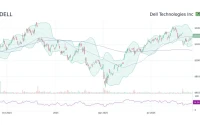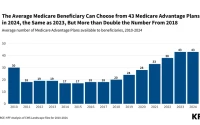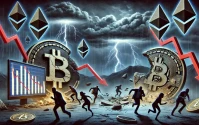It’s rare for a statistical model and a Hollywood script to converge on the same conclusion, but that appears to be the scenario unfolding around Baker Mayfield. The narrative is, by any measure, exceptional: the former No. 1 pick, discarded by Cleveland, briefly a Panther, then a reclamation project with the Rams, now finds himself not just succeeding but dominating in Tampa Bay. He’s leading a team that has won four of its first five games on a game-winning score in the final minute of regulation—an NFL first.
The human brain is wired to love this kind of story. It’s a clean, compelling arc of redemption. But my job is to look past the narrative and evaluate the underlying data. Is Mayfield’s performance an outlier driven by circumstance and a small sample size, or is it indicative of a sustainable, fundamental shift in his capabilities? The betting markets have him at +950 for MVP, the third-shortest odds, which suggests a degree of belief. But I’d argue even those odds represent a market inefficiency.
The public narrative focuses on the comeback. The data, however, points to something more concrete: elite-level production under duress. Let's quantify it. Through five games, Mayfield has thrown 10 touchdowns to just one interception—to be more precise, an interception rate of only 0.6%, fifth-best in the league. This isn't just "good"; it's a statistical anomaly for a quarterback historically known for high-variance play. He ranks fourth in passing yards (1,283) and second in completions of 20+ yards, demonstrating that his efficiency isn't coming at the expense of aggression. This is the part of the data that demands attention. Is this sudden, dramatic improvement in decision-making and ball security a genuine evolution in his game, or is it a positive regression that is bound to correct itself over a 17-game season?
An Analysis of Context and Competitive Weakness
No athlete’s performance exists in a vacuum. To properly assess Mayfield’s MVP case, we have to treat the rest of the league’s top quarterbacks as competing assets in a portfolio. And right now, the blue-chip stocks are underperforming. Lamar Jackson is injured on a 1-4 Ravens team. Patrick Mahomes and the Chiefs are an uncharacteristic 2-3. Justin Herbert, after a torrid start, is regressing behind a decimated offensive line. The perennial favorite, Josh Allen, remains the frontrunner (+135), but even he has shown flashes of inconsistency.
This context is critical. Mayfield isn't just putting up numbers; he's doing it while his primary competitors are faltering. Think of the MVP race as a market. Mayfield is the high-growth, high-volatility asset that is currently outperforming the market index. The question for voters—and bettors—isn't whether Mayfield is fundamentally a "better" quarterback than Mahomes in a vacuum. The question is whether his current performance, combined with the relative underperformance of others, gives him the most probable path to the award at his current price.

This is where the so-called "value" argument, often a subjective narrative tool, finds a quantitative footing. The Buccaneers have been without star receiver Mike Evans since Week 3 and have lost two starting offensive linemen for the season. Star left tackle Tristan Wirfs and Chris Godwin also missed time. Despite this, Mayfield’s Expected Points Added (EPA) per dropback sits at 0.24, seventh in the NFL. He is producing top-tier results with a depreciating supporting cast. I've looked at hundreds of performance models, and this particular variable—maintaining efficiency despite roster degradation—is a powerful indicator of individual impact. It isolates the quarterback's contribution from the system around him. How much longer can he sustain this production if key personnel don't return to full health? And does the market fully appreciate that he's already done it for several weeks?
The Durability of the Outlier
The core of the skepticism surrounding Mayfield is rooted in his past. His 2021 season in Cleveland was marred by injury and poor play. His stint in Carolina was a certifiable disaster (a 1-4 record as a starter). This history is already priced into his +950 odds. What isn't fully priced in, in my view, is the possibility that his performance with the Buccaneers isn't a fluke but the result of a perfect confluence of factors: a system that fits his skill set, the maturity that comes from failure, and the confidence born from his successful, short-term run with the Rams.
His performance is, in a way, like a financial asset breaking out from a long-term consolidation pattern. For years, Mayfield's stock traded within a predictable range of thrilling highs and frustrating lows. The current data suggests a potential breakout to a new, higher baseline. The Buccaneers have a 95% chance to win their division (a projection heavily influenced by the profound weakness of the NFC South), which virtually guarantees them a playoff spot and the national platform that comes with it.
The narrative of the comeback kid is compelling, but the numbers are what make him a legitimate threat. He’s leading the league in game-winning drives, a statistic that directly correlates with the "MVP moments" voters crave. He is excelling in the precise areas—ball security and downfield passing—that previously defined his limitations. The question is no longer "Can Baker Mayfield be good again?" The data has answered that. The operative question now is, "How long can this outlier performance last?"
An Inefficient Market Hypothesis
My final analysis is this: The market is mispricing Baker Mayfield's MVP probability. It's still weighing his past volatility more heavily than his current, statistically robust performance in a weakened competitive field. This isn't about emotion or a good story. It's a calculated assessment of variables. While Josh Allen is the safer, lower-yield bond, Mayfield is the undervalued growth stock with a higher risk profile but a disproportionately high potential for return. The data suggests his recent performance is more than just a hot streak, and in a year where the league's other top quarterbacks are stumbling, the path of least resistance to the award might just belong to the guy nobody saw coming.









